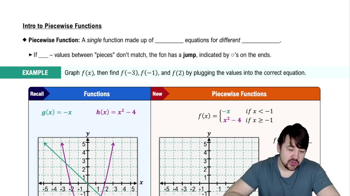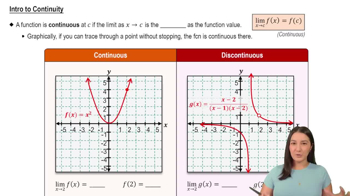Textbook Question
Suppose g(x)=f(1−x) for all x, lim x→1^+ f(x)=4, and lim x→1^− f(x)=6. Find lim x→0^+ g(x) and lim x→0^− g(x).
 Verified step by step guidance
Verified step by step guidance Verified video answer for a similar problem:
Verified video answer for a similar problem:



 5:21m
5:21mMaster Finding Limits by Direct Substitution with a bite sized video explanation from Patrick
Start learning